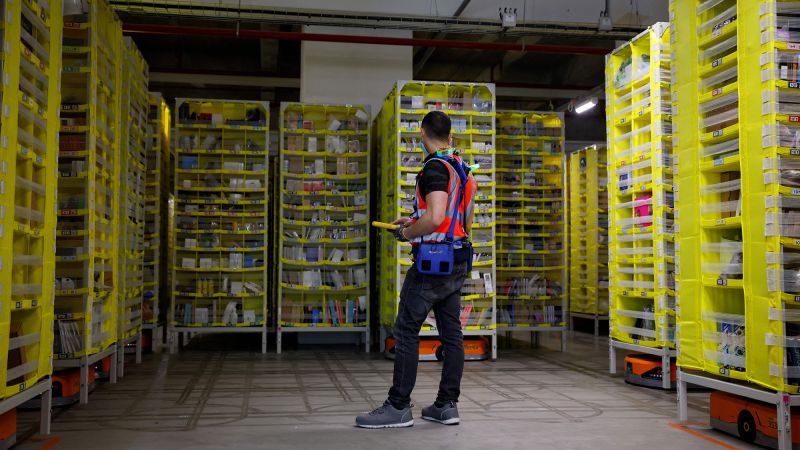Amazon is warning its employees that artificial intelligence will help the company have a smaller workforce in the future.
In a blog post Tuesday that was sent out earlierto employees, Amazon CEO Andy Jassy said that efficiency gains from AI would allow the company to eventually have a reduced human workforce.
“As we roll out more Generative AI and agents, it should change the way our work is done. We will need fewer people doing some of the jobs that are being done today, and more people doing other types of jobs,” he wrote.
“It’s hard to know exactly where this nets out over time, but in the next few years, we expect that this will reduce our total corporate workforce as we get efficiency gains from using AI extensively across the company,” he continued.
Al won’t just effect change at Amazon, Jassy said. AI “will change how we all work and live,” including “billions” of AI agents “across every company and in every imaginable field.”However, much of this remains speculative.
“Many of these agents have yet to be built, but make no mistake, they’re coming, and coming fast,” Jassy said.
He urged employees to view AI as“teammates we can call on at various stages of our work, and that will get wiser and more helpful with more experience.”
Jassy’s message follows increased warnings within the tech industry over AI’s effect on white collar jobs.
In May,Anthropic CEO Dario Amodei warned on CNNthat the technology will spike unemployment sooner than unprepared political leaders and businesses expect. AI, including tools Anthropic itself is building, could eliminate half of entry-level, white-collar jobs and boost unemployment to as much as 20% in the next one to five years, he toldAxios.
Critics say these warningsaren’t based off much research or evidence and are coming from the people who are poised to profit the most from AI adoption.
